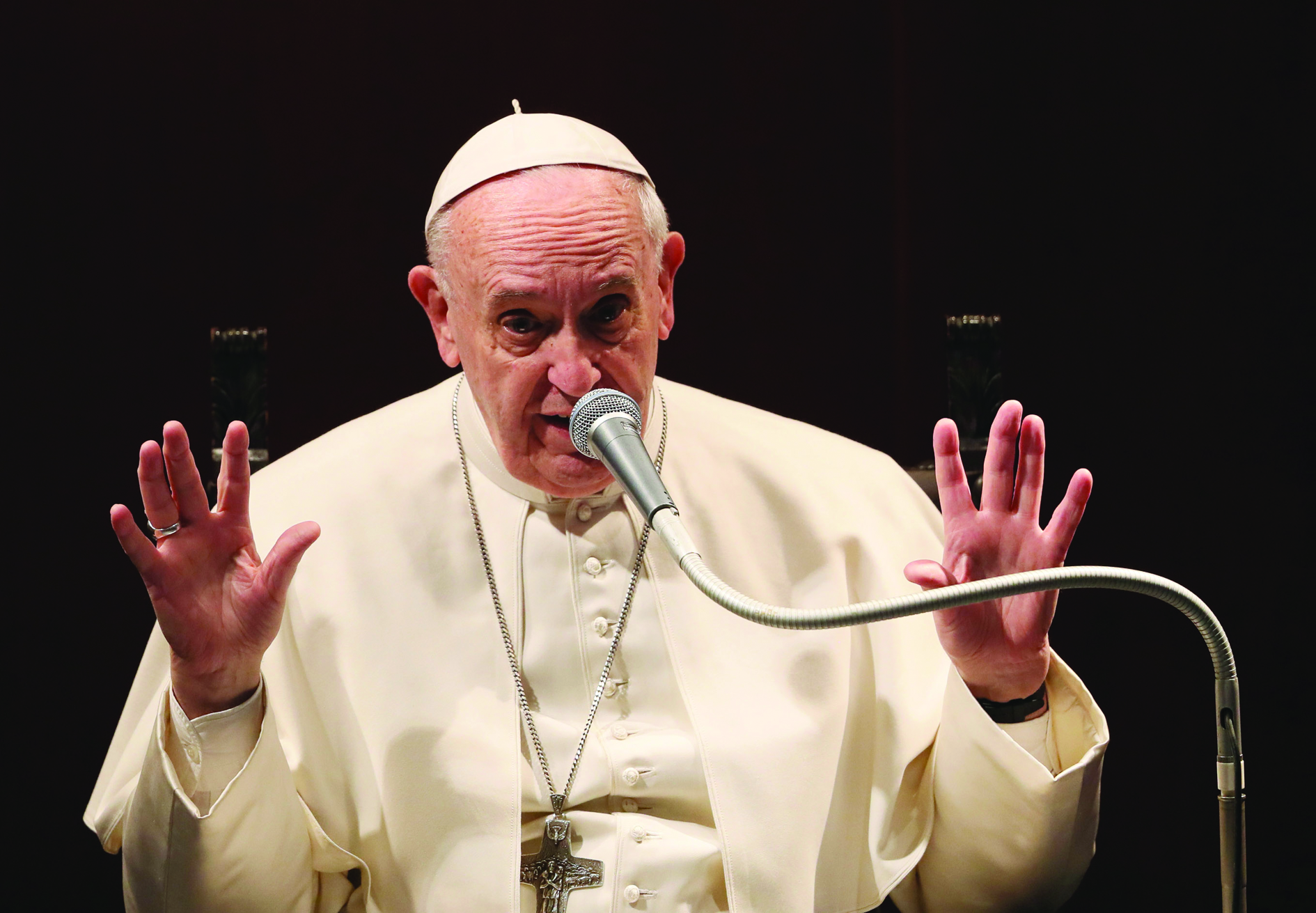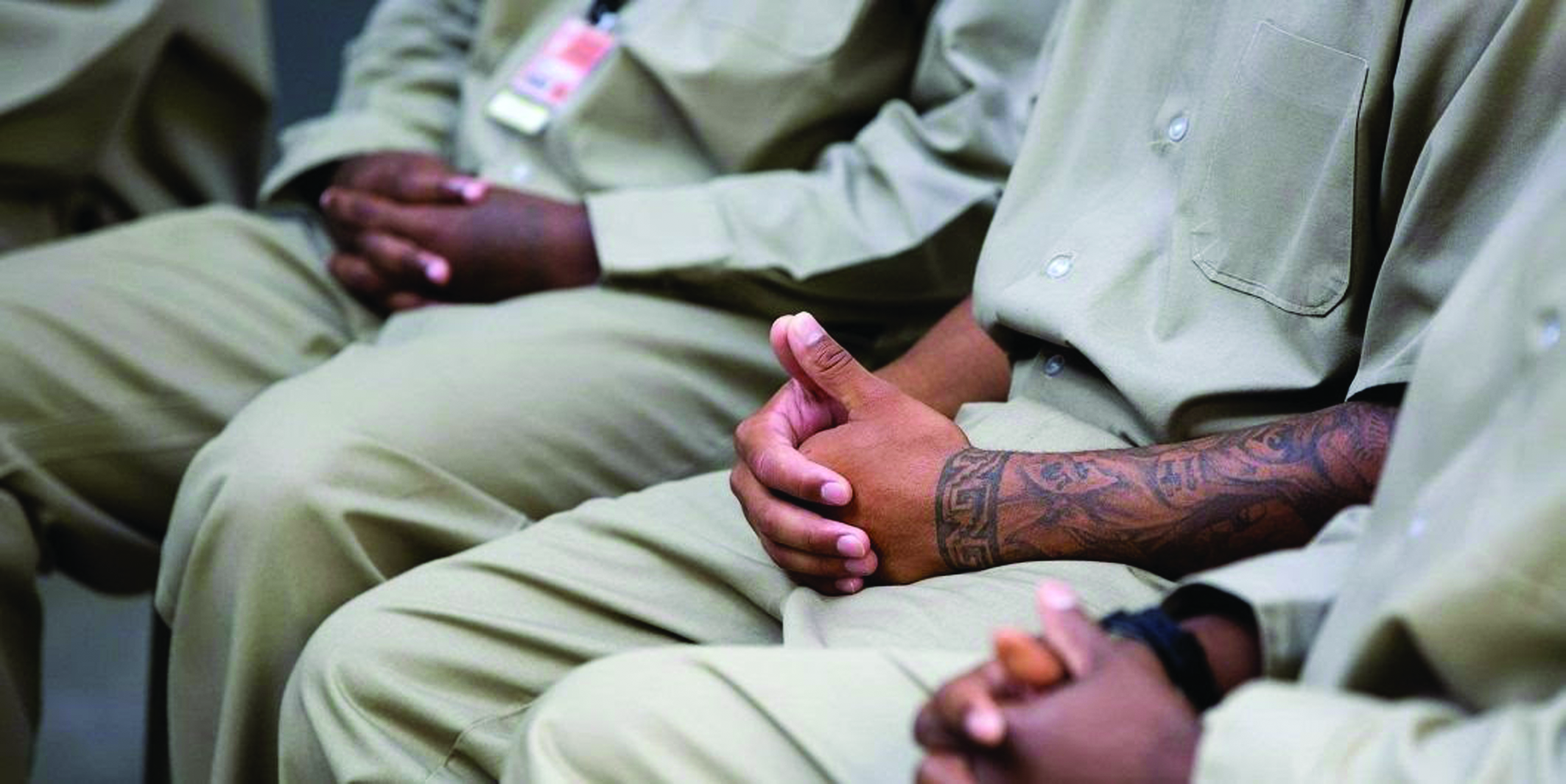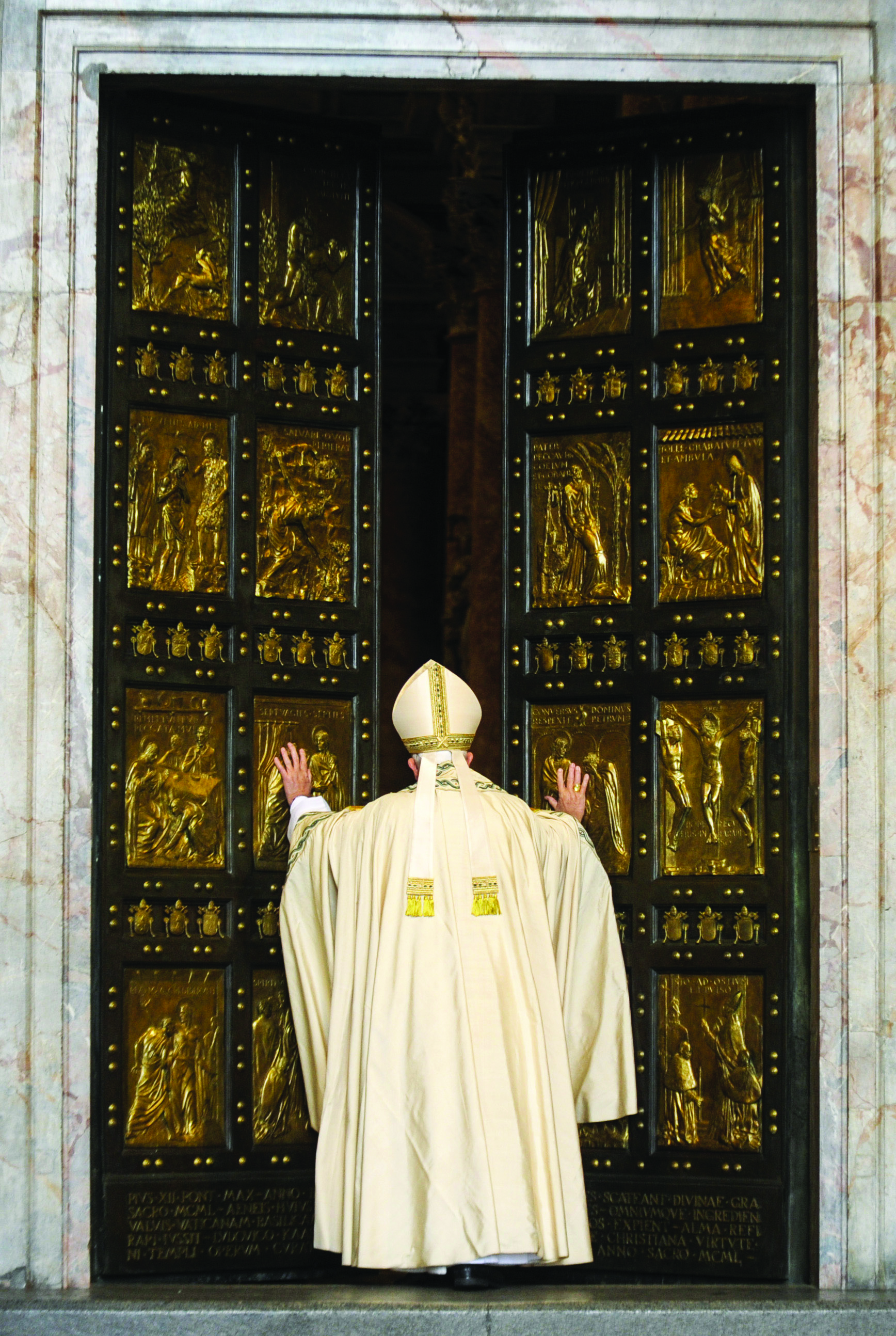
The cardinal’s speech began innocently enough, highlighting central Catholic themes on marriage and the family. Then, ever so gently, veered off course.
Invoking the mercy of Christ, Cardinal Kasper suggested that the Church should consider offering Communion to divorced and civilly remarried Catholics (i.e., Catholics whose first marriage is still valid in the Church’s eyes, but who are now having relations with their new spouses). Kasper stressed that, under his more compassionate approach, the “pastoral” side of the Church could be highlighted, without violating the essence of Catholic teaching on the indissolubility of marriage. Communion would only be given to certain remarried Catholics, and only after a period of penance and reflection.
But for all his Scriptural and theological talk — and in spite of his insistence that his proposal was faithful to Catholic tradition — the cardinal could not hide the revolutionary nature of his proposal: he was proposing nothing less than a complete reversal in Catholic teaching. He was advocating that the Church offer Communion to Catholics who were — however sincere they might be in their new relationships — objectively practicing adultery. And this in spite of the Lord’s condemnation of that sin, and St. Paul’s warning that those who partake in the Body of Christ unworthily bring judgment upon themselves.
At first, the Catholic faithful were bewildered by two things: first, why a cardinal supposedly elevated for his orthodoxy would so openly break with essential Catholic teachings on marriage, adultery and the Holy Eucharist; and second, why Pope Francis would allow such a cardinal to speak with such audacity, at a high-profile gathering, against the settled teaching of the Church.
As Catholics debated these questions during the spring and summer of 2014, Cardinal Kasper published his talk as a book, The Gospel of the Family, and began touring the world, promoting its thesis, potentially influencing the Extraordinary Synod of Bishops in October.
Realizing danger was afoot, a group of concerned Catholics united to challenge Kasper’s thesis, culminating in an outstanding book, Remaining in the Truth of Christ, published just as last fall’s Synod was getting underway. The book was edited by Father Robert Dodaro, an Augustinian priest who is President of the Institutum Patristicum Augustinianum in Rome, where he is also a Professor of Theology. He is in addition a Professor of Patristic theology at the Pontifical Lateran University. The book collects the essays of five leading cardinals and four prominent scholars, explaining every aspect of the Church’s teaching on marriage, supplying comprehensive answers to those who challenge it. “The purpose of the present volume,” writes Dodaro, “is to answer Cardinal Kasper’s invitation for further discussion.”
The essays explain why Kasper’s proposal “cannot be reconciled with the Catholic doctrine on the indissolubility of marriage,” and why it “reinforces misleading understandings of both fidelity and mercy.”
The opening chapters, by Father Paul Mankowski, S.J., and Dr. John Rist, examine the biblical data pertaining to divorce and remarriage and how this practice was regarded by the early Church. Neither author finds any support for Cardinal Kasper’s claim of early Christianity’s supposed “toleration” of civil marriage after divorce. In fact, the biblical and patristic evidence directly refutes Kasper.
Utilizing Scriptural passages from Genesis to the New Testament, Father Mankowski establishes the clear teaching of Christ concerning the indissolubility of marriage, and shows how those who’ve invoked certain biblical passages in an effort to justify divorce and remarriage have seriously misrepresented their meaning.
Similarly, Professor Rist convincingly shows that Cardinal Kasper’s claim that the early Church accepted divorce and remarriage is without merit — it was consistently denounced as “unscriptural” — and rests on the assertions of a single writer whose work has been repeatedly answered — a fact of which the cardinal appears unaware. That Kasper presents this minor author’s work as representative of the Catholic tradition — overlooking its actual history, as expounded by scholars far more informed — is indicative of the cardinal’s selective approach to this subject. Charitably, but tellingly, Professor Rist comments: “If we ask how it can be the case that there are those who appeal to the ancient evidence as part of an argument in favor of change, we can only conclude that they (or the sources on which they rely) are guilty of an unfortunate practice all too common elsewhere in academia: the evidence in one view [in this case, traditional Catholic teaching] is overwhelmingly superior, but there are a very few cases — and perhaps even these largely of uncertain determination — that point to the contrary conclusion. It is then claimed that the evidence, if not in favor of change, at least leaves the solution open. Such a procedure can only be condemned as methodologically flawed.”
The Eastern Orthodox doctrine and practice of oikonomia — understood as a form of mercy leading to the acceptance of divorce and remarriage — has been cited by Cardinal Kasper as a way forward for the Catholic Church. But as Archbishop Cyril Vasil demonstrates, in his incisive contribution, it was poor exegesis, civil Byzantine legislation and political pressure — not faithful Christianity — which led to this defective practice. And it is a practice that not even Eastern Orthodox theologians agree on to this day, with a whole range of views on the subject. Only the Church of Rome has kept true to the clear teaching of Jesus Christ.
Cardinal Walter Brandmuller’s essay on the history of Catholic teaching on marriage — throughout the Middle Ages, and up until the Council of Trent — complements the points made by Mankowski, Rist and Vasil on the strength and continuity of that teaching.
Brandmuller’s essay concludes by highlighting how Catholics reacted to “the most famous case of… King Henry VIII in England, who desired an annulment of his undoubtedly valid marriage with Catherine of Aragon so as to marry the maid of honor Anne Boleyn.”
As is well-known, while “almost the entire clergy” and many laymen capitulated to the King’s illicit request, faithful Churchmen like St. Thomas More and Bishop John Fisher, along with numerous less-known Catholic heroes, bore witness to the truth and suffered martyrdom because of it. Rome championed and defended their honor, even as the rest of once-Catholic England went the way of the apostate King:
“It was a moment of glory in the history of the papacy when Clement VII, regardless of the consequence, upheld the truths of the faith and responded to the demands of the king with his famous ‘non possumus’ (‘we cannot’).” Although Brandmuller does not explicitly mention it, the connection between that mass apostasy and the dissenters of today is unmistakable.
Having established the Biblical and historical background of the Church’s teaching on marriage, the book then explains the rich theology underpinning it. Three exceptional essays — by Gerhard Cardinal Mueller (Prefect for the Congregation of the Faith), Cardinal Carlo Caffarra (the archbishop of Bologna) and Velasio Cardinal De Paolis — explain why marriage is a sacrament, and why it flows from the very heart of Jesus Christ’s New and Everlasting Covenant. As Cardinal Caffarra writes: “It is a gift that ontologically configures the person of the spouses, inasmuch as they become joined to one another with a bond, a conjoining, which is the real symbol of the Church belonging to Christ and of Christ belonging to the Church.”
That this bond unites spouses in a valid marriage for as long as they live is the constant teaching of the Church — reaffirmed by Vatican II and our last three Popes — Francis, Benedict and St. John Paul II — as the appendix to this work amply documents.
In cases where there is doubt about the validity of a certain marriage, that should be examined fairly and conscientiously, as Cardinal Raymond Burke, an expert in canon law, affirms in the last chapter of this book. Moreover — as the contributors stress — Catholics in irregular marital situations, often with children involved, should always be treated with Christian charity, and reminded that they remain an active part of the Church, even if they cannot receive Holy Communion. But the annulment process should never be abused; and the truth and permanence of valid marriages should always be upheld — no matter which way the cultural winds are blowing, inside or outside the Church.
That this excellent book was published in response to Cardinal Kasper’s unfortunate proposal, and as a way of impressing the truth upon the Synod on the Family, was surely providential. But exactly for that reason, dissenters feared it, and there were reports that the book’s intended distribution to every bishop attending the Synod was suppressed.
Questioned about these reports, the General Secretariat of the Synod of Bishops — who some had suspected of interfering — told Vatican Insider, “there was no censorship” and that the books “were delivered.”
But respected Vatican reporter Edward Pentin, who broke the story for the English-speaking world, told ITV, “They have still to give a yes/no answer as to whether the books were removed from the mailboxes by someone other than the intended recipient. No one disputes they were delivered to the mailboxes.” Fortunately, though only a handful of bishops received the book from their mailboxes in the Synod hall, most of the rest of them, ITV has learned, acquired a copy by other means.
It is alarming to think that a book which simply reiterates the teaching of Christ, as expounded by the Church throughout the centuries, may have been deliberately blocked at the beginning of the recent Synod. It wouldn’t be the first time unsavory business had occurred at a major Church gathering, but, if true, reveals the kind of resistance the faithful will face at the upcoming and concluding Ordinary Synod on the Family this fall.
What is clear is that a number of influential prelates oppose this book’s thesis, and don’t want its arguments to win the day.
Ironically, however, the controversy surrounding its distribution at last fall’s Synod has given the book far more publicity than it could have hoped, and so its impact on Pope Francis and the upcoming, concluding Synod — when final recommendations for the Church’s care for the divorced and remarried will be reached — will be that much greater.
The editor and contributors deserve high praise for publishing Remaining in the Truth of Christ, and Ignatius Press is to be commended for making it available in English. Every concerned Catholic should buy and read it, and send it to as many relatives and friends as possible, especially their parish priests and bishops. The world — not to mention many Catholics, confused or misled about the Church’s teaching — is starving for the truth about marriage, and this book brilliantly provides it.
Doino, an American, writes from Connecticut, USA.











Facebook Comments